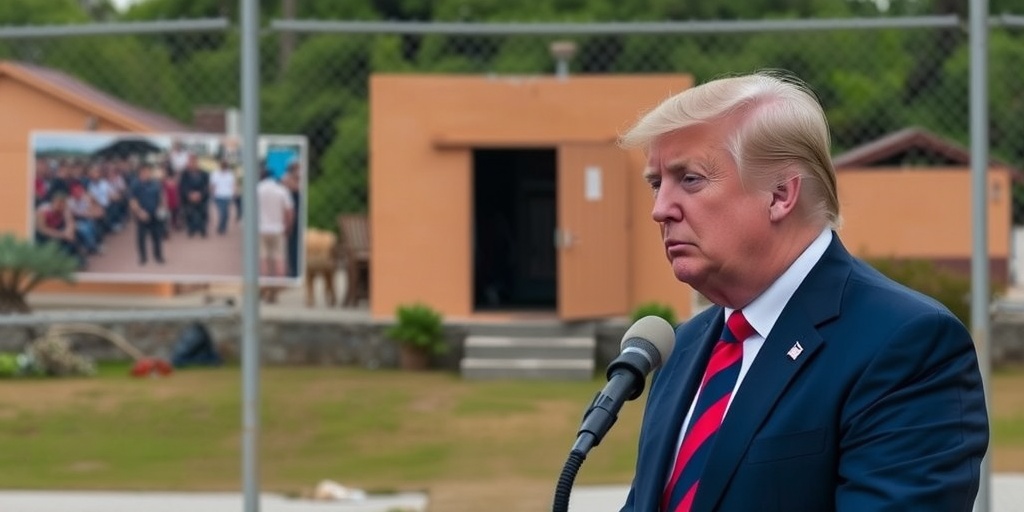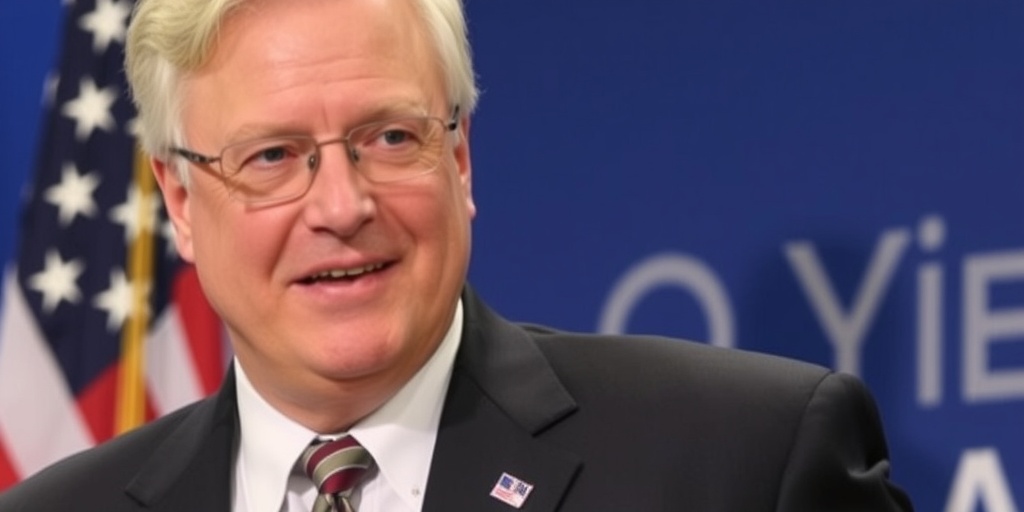Now Reading: Can Trump Legally Relocate Migrants to Guantánamo Bay?
-
01
Can Trump Legally Relocate Migrants to Guantánamo Bay?
Can Trump Legally Relocate Migrants to Guantánamo Bay?

Migrants Transferred to Guantánamo: Legal and Ethical Concerns Arise
The Trump administration has initiated a contentious policy of transferring migrants from the U.S. to the military base at Guantánamo Bay, Cuba. This decision has sparked numerous legal inquiries regarding the government’s authority to execute such transfers and the rights of those migrants detained at the facility. To date, it is believed that over 150 Venezuelans have been relocated to Guantánamo, prompting at least three lawsuits related to the transfers, with rights organizations poised to present larger challenges in court.
One of the most pressing legal questions is whether the U.S. government has the authority to transfer migrants to Guantánamo. The base, located on sovereign Cuban territory, is under the exclusive jurisdiction of the United States due to a long-standing lease agreement and diplomatic tensions with Cuba’s current communist regime. Legal experts speculate on the legitimacy of such moves, given the ambiguity surrounding Guantánamo’s status.
Typically, transfer procedures for migrants fall under the Immigration and Nationality Act (INA), which allows the government to detain individuals awaiting deportation if they have been issued final removal orders. While there is a consensus that the Immigration and Customs Enforcement (ICE) can reassign detained individuals between holding facilities within the U.S., Guantánamo does not qualify as part of U.S. territory. The INA explicitly defines the United States as comprising the fifty states, along with territories like Puerto Rico and Guam, which does not include Guantánamo.
Moreover, while the INA permits the transfer of migrants to other countries under certain conditions, the U.S. does not have permission from Cuba to bring Venezuelan nationals to its soil. As a result, the explicit legal authority for such transfers remains questionable, leading experts like UCLA immigration law professor Ahilan T. Arulanantham to speculate that the Trump administration might invoke an inherent presidential power as a possible legal justification if challenged in court. However, he articulated skepticism about the strength of this legal argument, noting that the control over immigration has historically been regarded as a state matter.
A broader legal concern revolves around the government’s power to detain migrants at Guantánamo. Immigration law specialists have been investigating federal statutes for a definitive source that allows the detention of noncitizens outside the U.S. for immigration-related purposes, yet they have found no clear authority. Guantánamo previously housed terrorism suspects captured during the War on Terror, but their detention was sanctioned by legislation passed in response to the events of September 11, 2001. The detainees now being sent there are not linked to terrorism and pose different legal challenges.
The U.S. government has long intercepted migrants from Cuba and Haiti in open waters, bringing them to Guantánamo for processing, claiming they lack constitutional protections pertaining to immigration law unless they physically step onto U.S. soil. Consequently, although some individuals may be accommodated temporarily at Guantánamo’s migrant center, which often places restrictions on their movement, the government maintains that it is not formally detaining them, asserting that individuals have the option to return to their home countries.
Access to legal counsel for these migrants also poses significant legal dilemmas. A coalition of legal aid organizations recently filed a lawsuit to secure access to attorneys for the Venezuelans. The plaintiffs argue that constitutional protections that apply to individuals on U.S. soil should also be extended to migrants at Guantánamo. Many detained migrants currently lack any means of communication to reach out to legal representatives, raising concerns about due process rights.
With the information being requested, the Justice Department has tentatively permitted a limited number of detainees to consult with lawyers over the phone, but uncertainties remain over how the Trump administration will address the wider implications of such legal proceedings.
The duration of these migrants’ detainment at Guantánamo remains uncertain. In the Pentagon’s announcement regarding the transfers, officials indicated that this operation would be a "temporary measure," meant to secure the migrants until they might be sent back to their home country or another suitable destination. However, with the current diplomatic climate between the U.S. and Venezuela, issues regarding long-term detainment may emerge, particularly since U.S. immigration law dictates that noncitizens must be deported within 90 days of receiving their removal orders.
The Supreme Court has previously ruled that the government cannot maintain individuals indefinitely without a viable plan for deportation. In the present context, while Trump administration officials label these migrants as criminals and associates of gangs such as Tren de Aragua, actual criteria for their transfer to Guantánamo merely seem to be their status as Venezuelan citizens facing removal orders—an assertion that does not universally hold true for all detainees.
As the situation evolves, the complexities surrounding legal custody rise to the forefront. Although the migrants are formally under the jurisdiction of ICE, few ICE officers are present at Guantánamo. The conditions of their confinement, governed by ICE standards, remain largely unknown, especially in facilities managed by military personnel traditionally used to handling wartime detainees. Additionally, the military’s role raises unsettling questions about legal limits on the military’s use for law enforcement, particularly under the Posse Comitatus Act, which restricts federal troops from engaging in policing activities.
This unprecedented use of Guantánamo as a holding site for migrants introduces a myriad of legal, ethical, and territorial complexities that challenge existing immigration frameworks and the rights of individuals seeking asylum. The outcome of these developments could have significant implications for future U.S. immigration policy and the treatment of migrants.
Stay Informed With the Latest & Most Important News
Previous Post
Next Post
-
 01New technology breakthrough has everyone talking right now
01New technology breakthrough has everyone talking right now -
 02Unbelievable life hack everyone needs to try today
02Unbelievable life hack everyone needs to try today -
 03Fascinating discovery found buried deep beneath the ocean
03Fascinating discovery found buried deep beneath the ocean -
 04Man invents genius device that solves everyday problems
04Man invents genius device that solves everyday problems -
 05Shocking discovery that changes what we know forever
05Shocking discovery that changes what we know forever -
 06Internet goes wild over celebrity’s unexpected fashion choice
06Internet goes wild over celebrity’s unexpected fashion choice -
 07Rare animal sighting stuns scientists and wildlife lovers
07Rare animal sighting stuns scientists and wildlife lovers





















